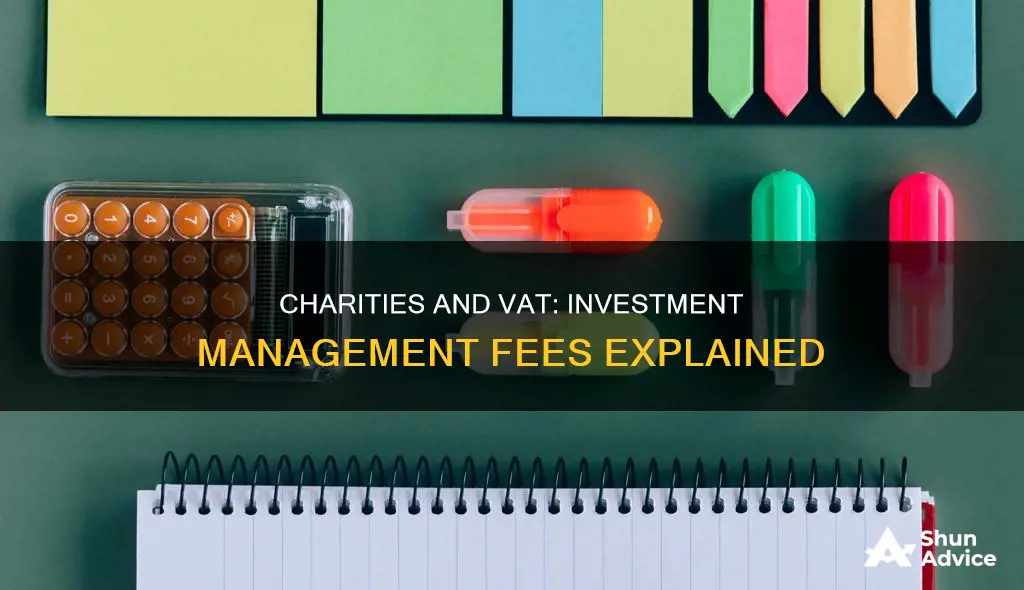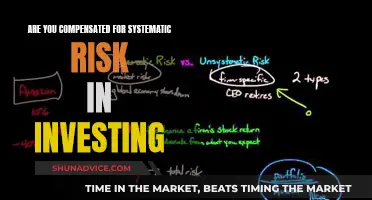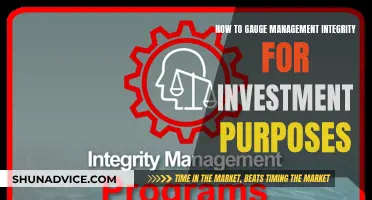
Charities in the UK have long been uncertain about their ability to recover VAT on investment management fees. While HMRC has typically denied VAT recovery, arguing that these costs are tied to VAT-exempt or non-business investment activities, some organisations have treated them as general overheads, allowing for partial VAT recovery. The University of Cambridge, a registered charity, has been at the centre of this debate, challenging HMRC's stance by asserting that investment returns support wider business activities. However, recent rulings by the Court of Justice of the European Union (CJEU) have dealt a blow to charities, concluding that investment management fees are non-business activities, making it challenging for charities to recover VAT on these costs. This decision has significant implications for the charity sector, particularly larger endowments, and has sparked concerns about potential limitations on VAT recovery for fundraising costs as well.
What You'll Learn

Charities' ability to reclaim VAT on fund management fees
This issue has been the subject of litigation involving the University of Cambridge, a registered charity that makes VAT-exempt supplies of education while also engaging in commercial activities subject to VAT, such as research, publishing, and consultancy. The University's income includes a portion from an endowment fund managed by a third-party investment manager, on whose fees VAT is incurred. Tribunals have ruled in the University's favour, deciding that these investment costs benefit the University's business activities in general and are not solely linked to supporting investment activities. As a result, there is a precedent for charities to claim VAT on investment management costs according to their standard VAT recovery entitlements under business, non-business, and partial exemption methods.
However, the EU's Court of Justice (CJEU) ruled against Cambridge University's attempt to reclaim VAT on investment management fees, stating that the costs of the endowment fund were not an overhead of the University's business activities because the fund serves multiple charitable purposes. This ruling has implications for UK charities' ability to reclaim VAT on fund management fees and may result in significant financial losses for larger charities.
The inconsistency in how charities treat investment management costs means that each charity must review its approach and take positive action to maximise VAT recovery. Diane Wilde, director of charities at Barclays Wealth, Scotland, advocates for the government to reconsider reducing VAT on investment management fees for charities. She highlights the challenges charities face in the current economic climate and the fiduciary duty of trustees to appoint external advisers to provide investment advice and support. Removing VAT on management services would enable trustees to better protect their fiduciary interests and choose asset management services with transparent reporting and cost structures.
Taxable Investment Portfolio: Diversification Strategies for Long-Term Growth
You may want to see also

VAT reclaims on fundraising activities
Charities in the UK have to pay VAT on supplies of fuel and power, but they can claim a reduced rate when fuel and power are supplied for qualifying uses. Qualifying uses include supplies for charitable non-business activities, such as free daycare for the disabled, and supplies for use in dwellings or certain other types of residential accommodation.
Charities can reclaim input tax in respect of taxable business activities, but they cannot normally reclaim any input tax in respect of exempt business activities. Charities can only reclaim input tax in respect of taxable business activities, with some exceptions, such as motoring expenses and business entertainment.
Charities are also able to reclaim VAT on fundraising events, which are defined as events clearly organised and promoted primarily to raise money for the benefit of the charity. However, there are some restrictions to prevent distortion of competition with other organisations holding similar events that don't benefit from VAT exemption. For example, eligible events are restricted to 15 events of the same kind in a financial year at any one location by the charity.
Additionally, certain goods and services are zero-rated or reduced-rated when bought by charities, regardless of whether they are registered for VAT or not. Charities wishing to take advantage of these reliefs must provide their suppliers with eligibility declarations certifying that the conditions have been met for that relief.
In recent years, there has been uncertainty over the entitlement of charities to recover VAT on investment management fees. While some organisations have sought to treat these fees as a general overhead, which would allow a proportion of the VAT to be recovered, HMRC has often denied VAT recovery, arguing that these costs are directly related to the VAT-exempt or non-business activity of investment.
The Children's Society, a UK charity, previously used a CJEU decision that held that a German trading company, Kretztechnick, could reclaim VAT on the costs of a rights issue to successfully appeal against a decision by HMRC to refuse a VAT reclaim on the cost of fundraising services. Many UK charities have used this decision to enable the partial recovery of VAT on fundraising costs.
However, following the CJEU's ruling against Cambridge University's appeal to reclaim VAT on investment management fees, there is a concern that HMRC could use this decision to refuse VAT reclaims on charities' fundraising costs. This is because, unlike Kretztechnick, whose rights issue was used solely to fund its business activities, the costs of Cambridge University's endowment fund were not an overhead of the business activity of the university, as the fund is used for various charitable purposes.
Portfolio Theory: Investment Analysis Fundamentals Explained
You may want to see also

VAT recovery on investment management costs
Charities and businesses should be aware of the VAT recovery position in relation to their investments. There has been uncertainty over the entitlement to recover VAT on investment management fees. While HMRC has often denied VAT recovery, arguing that these costs are directly related to the VAT-exempt or non-business activity of investment, some organisations have treated them as a general overhead, allowing a proportion of the VAT to be recovered.
The University of Cambridge, a registered charity, has challenged HMRC's recovery of VAT on investment funds from donations and endowments. The University argued that they should be able to claim back a proportion of the VAT because the investment returns were used to support wider business activities. However, the Court of Justice of the European Union ruled that the costs of managing an investment fund of donations and endowments were a non-business activity and not sufficiently linked to the charity's business activities to allow proportional VAT recovery on fees. This ruling sets a precedent for differentiating between investment income used to grow business activities and subsidising business income.
The outcome of the University of Cambridge case means that charities won't be able to recover a proportion of the VAT incurred on fees related to investment management. They will also need to review past VAT recoveries, as there may be potential exposure that should be declared to HMRC. This case highlights the need for charities and businesses to consider the VAT recovery position for their various investments. For example, a farmer investing in single farm payment entitlements with VAT-incurred purchases may be deemed a non-business investment activity, blocking VAT recovery on costs.
While there is no one-size-fits-all advice due to the inconsistent treatment of such expenditure by charities, it is crucial for charities to review their treatment of investment management costs and take positive action to maximise available VAT recovery.
Aggressive Investment Portfolio: High-Risk, High-Reward Strategy
You may want to see also

VAT on costs relating to investments in property
Charities in the UK have, in recent years, faced uncertainty over their entitlement to recover VAT on investment management fees. While HMRC has often denied VAT recovery, arguing that these costs are directly related to VAT-exempt or non-business investment activities, some organisations have treated them as a general overhead, allowing for VAT recovery.
This issue is currently the subject of litigation involving the University of Cambridge, a registered charity that makes VAT-exempt supplies of education alongside commercial activities such as research, publishing, and consultancy, which are subject to VAT. The University derived around 6% of its income from an endowment fund managed by a third-party investment manager, and the litigation centres on whether the investment costs were incurred for the benefit of the University's business activities in general or solely to support an investment activity.
Subject to any successful appeal by HMRC, this case may set a precedent for charities to claim VAT on investment management costs according to their normal entitlement to recover VAT under their business, non-business, and partial exemption methods. Charities should review how they treat investment management costs to maximise available VAT recovery.
When considering VAT on costs relating to investments in property, it's important to distinguish between commercial and residential properties, as the rules differ.
Commercial Property
The sale or lease of commercial property is generally exempt from VAT, meaning neither the purchaser nor the tenant pays VAT. This exemption extends to the exchange of interests, rights, or licences to occupy commercial properties. However, vendors or landlords cannot recover any VAT incurred on related costs.
An exception to this rule is when the property is new (less than three years old) or the vendor/landlord elects to charge VAT, typically to recover VAT costs associated with refurbishment or renovation. Commercial property owners can opt to charge VAT at the standard rate (20%) when selling or leasing their property, but they must then charge VAT on all supplies related to that property.
Residential Property
Residential lettings, including single-let, HMO (House in Multiple Occupations), and Rent2Rent residential lettings, are generally exempt from VAT. However, serviced accommodation, such as Airbnb, is treated as holiday accommodation and is subject to the standard VAT rate of 20%.
If a business sells more than the VAT registration threshold (£90,000 for the 2024/25 tax year), it must register for VAT. Voluntary registration allows for the recovery of input VAT paid to suppliers, but customers may be reluctant to pay extra VAT.
New Residential Development
The construction of new residential properties often involves zero-rated VAT, meaning developers can claim back VAT paid to suppliers for development work. To be eligible for zero-rating, the supply must be the first grant of a major interest in dwellings, relevant residential properties, or relevant charitable properties. A major interest means freehold or a lease of more than 21 years.
Commercial to Residential Conversion
Converting commercial properties into residential ones also qualifies for zero-rated VAT, allowing developers to claim back VAT on construction work. Examples include converting a pub or a factory into residential flats or properties.
VAT on Property Conversion
Property conversion offers generous VAT relief for developers, and there are a few key scenarios to consider:
- Commercial to Residential Conversion: This type of conversion is zero-rated, allowing developers to claim back VAT on construction work.
- Residential Conversion (Change in Number of Dwellings): A reduced VAT rate of 5% applies to certain qualifying services for residential conversion when the project changes the number of dwellings in the property, such as converting a three-bedroom house into two flats.
- Conversion into HMO (House in Multiple Occupation): Converting a single-occupancy dwelling into multiple occupancy qualifies for a reduced VAT rate of 5%. Planning consent and building control approval are necessary to qualify for this reduced rate.
- Commercial Property: The sale of freehold in an uncompleted or new commercial building is standard-rated at 20% VAT. However, leasing a commercial property or an old commercial building (older than three years) is not taxable unless an "option to tax" election is made.
Option to Tax
The "option to tax" allows owners to change the VAT treatment of exempt commercial land or buildings to standard-rated supply. By doing so, landlords can recover VAT paid on regular expenses and building work from HMRC. This option must be made on a building-by-building basis and is generally irrevocable for 20 years.
Transfer of Going Concern (TOGC)
If a property is sold as a Transfer of Going Concern (TOGC), it falls outside the scope of VAT, and no VAT is payable. This applies when the property is capable of being run as a property rental business, such as being sold with tenants in place or with the benefit of an existing lease, and the buyer intends to continue the same type of business.
VAT Implications on Property Sales and Purchases
When selling or purchasing property, it's crucial to understand the VAT implications, which differ depending on the type of sale:
- Sale of Property in the Normal Course of Business: Follow the standard VAT rules, including 0% for newly developed residential properties, 20% for commercial properties not older than three years, and exempt in most other cases.
- Sale of Property Along with the Business: This may qualify as a TOGC, and no VAT should be charged, subject to certain conditions.
- Purchase of Property: In some cases, you may not need to pay VAT on the purchase due to TOGC status, but incorrect VAT charges by the seller can result in the buyer's business being unable to recover the VAT.
While the above provides an overview of VAT considerations for property-related investments, it's important to note that each situation is unique, and expert advice should be sought to navigate the complex nature of VAT on property transactions.
Understanding the Domestic Saving-Investment Imbalance
You may want to see also

HMRC's treatment of investment management costs
In recent years, there has been a lot of uncertainty over the entitlement to recover VAT on investment management fees. HMRC has often denied VAT recovery, arguing that these costs are directly related to the VAT-exempt or non-business activity of investment. However, some organisations have treated them as a general overhead, allowing them to recover a proportion of the VAT.
This issue has been the subject of litigation involving the University of Cambridge, a registered charity that makes VAT-exempt supplies of education alongside commercial activities such as research, publishing, and consultancy, which are subject to VAT. The University's income included money from an endowment fund managed by a third-party investment manager, and VAT was incurred on the management fee. The First-tier Tax Tribunal and Upper Tribunal decided that the investment costs were incurred for the benefit of the University's business activities and not just to support investment activity. This means that charities can claim VAT on investment management costs according to their normal entitlement to recover VAT under their business, non-business, and partial exemption methods.
The VAT rules are based on the concept of making supplies in the course of furthering business. Generally, if goods or services are provided in return for a charge, it is considered a business activity for VAT purposes. For direct taxes (Income Tax and Corporation Tax), the rules are based on trading and profits. Charities must be familiar with both sets of rules when deciding how to organise their trading activities.
Charities can have only one trade under general case law. However, tax exemptions are applied by dividing trading into two different statutory forms: charitable and non-charitable. There are two forms of charitable trading: primary purpose trading and trading mainly carried out by beneficiaries. Primary purpose trading includes a religious charity selling bibles or a charitable school charging pupils. Trading carried out mainly by beneficiaries includes the sale of items manufactured by disabled people working for a charity whose purpose is to relieve disabled persons.
Non-charitable trading is any trading that does not fall into the above categories but is undertaken to raise funds for charitable purposes, such as selling promotional items. The profit from non-charitable trading is taxable unless it falls under the small trading exemption. If an activity involves both charitable and non-charitable trading, the tax position must be calculated as if they were separate trades, with income and expenditure apportioned accordingly.
For VAT purposes, there is no distinction between charitable and non-charitable trading. Even if an activity is carried out for the benefit of the community or to further charitable objects, it can still be considered a business activity for VAT purposes, and VAT may be due on the income.
The VAT treatment of business sponsorship and payments for the use of a charity's logo is different from the direct tax treatment. If a charity receives sponsorship, it will usually be making a taxable supply for VAT purposes if it provides the sponsor with a significant benefit in return. If the benefit is simply an acknowledgment of support, it is not considered a supply for VAT purposes. If the benefit is tangible, the payment is considered consideration for those supplies, and VAT will be due on the full payment.
VAT law only allows apportionment of single payments when they are made in relation to different supplies of goods or services. A single payment covering both a right to use a logo and a donation cannot be apportioned because a donation is not a supply for VAT purposes, and VAT will be due on the whole payment.
If a charity carries on a substantial, regular trading activity, it may be required to set up a subsidiary company to carry on the trade, even if the profits are exempt from tax. A subsidiary company may be necessary to protect charitable property from being used for non-charitable trading purposes. The statutory VAT exemption for fundraising events also covers events organised by a corporate body wholly owned by a charity, allowing a charity's trading company to hold qualifying fundraising events while benefiting from the VAT exemption.
Charities can make trading losses, and if the trading is within the charitable objects, these losses will be considered charitable expenditure. However, if the losses arise from non-charitable trading, they will be considered non-charitable expenditure, and tax exemption will not be available on that amount of the charity's income.
Fisher Investments: Understanding the Half-Million Portfolio Strategy
You may want to see also
Frequently asked questions
No, charities are not able to reclaim VAT on investment management fees.
There has been uncertainty over charities' entitlement to recover VAT on these fees. While HMRC has often denied VAT recovery, arguing that these costs are related to VAT-exempt or non-business activities, some organisations have treated them as general overheads, allowing for partial VAT recovery.
Yes, the University of Cambridge, a registered charity, challenged HMRC's recovery of VAT on investment funds, arguing that they should be able to claim back a proportion of the VAT as the investment returns supported wider business activities. However, the Court of Justice of the European Union (CJEU) ruled against the University, stating that the costs of managing an investment fund were a non-business activity and not sufficiently linked to the business activities to allow VAT recovery.
The ruling means that charities cannot recover a proportion of the VAT incurred on fees related to investment management. They may also need to review past VAT recoveries and declare any potential exposure to HMRC. This case sets a precedent that may impact other investments held by charities and businesses, such as investments in property or renewable energy incentives.
There is a concern that HMRC may use the Cambridge University case to refuse VAT reclaims on charities' fundraising costs. Legal experts worry that HMRC could argue that charities cannot recover VAT on fundraising costs because they often engage in non-VAT taxable activities. This could result in significant financial implications for charities, especially those with larger endowments.







